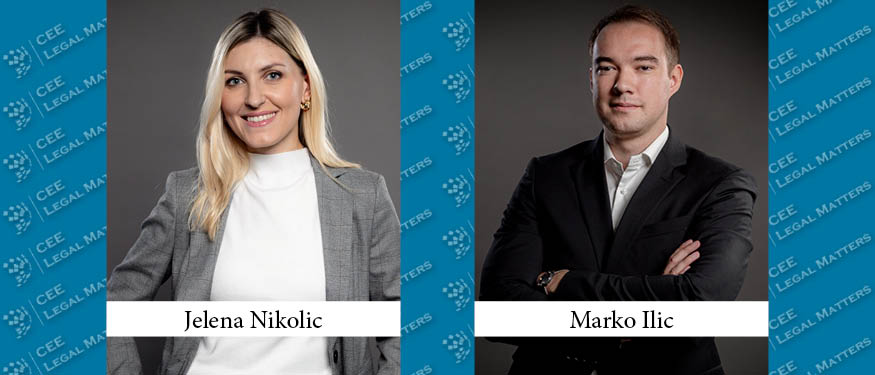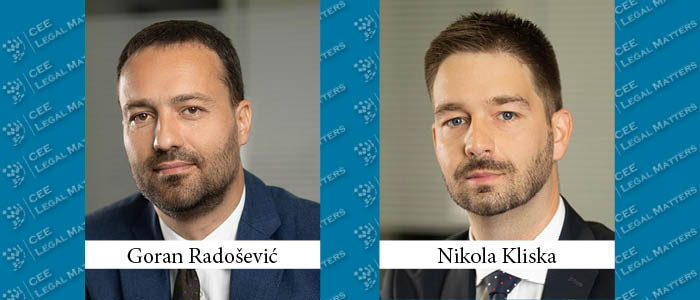NKO Partners has advised Sopharma on its full acquisition of Pharmanova. Radovanovic Stojanovic & Partners advised Pharmanova.
Using GIs: How Much Flavour Is Enough?
Many products on the market today are protected by geographical indications (GIs). GIs serve as a mark of quality, assuring consumers of the unique characteristics, taste, and origin of a product. This is especially important for food and beverages, where specific taste profiles often drive consumer loyalty. For example, Parmigiano Reggiano is celebrated for its complex, layered flavour with nutty notes – qualities that keep consumers coming back.
Competition in Serbia – Calm Before the Storm?
Serbia’s competition landscape has been relatively quiet on the surface for the last year and a half. However, the pressure is mounting, and major developments may be around the corner. Enforcement has slowed down, but the Commission for Protection of Competition (Commission) seems to be preparing the ground for a new wave of enforcement activity across key sectors.
Serbia: The Intersection of Life Sciences and the Legal World
In Serbia, the regulatory authority for the life sciences sector is the Medicines and Medical Devices Agency. This agency oversees a diverse array of functions aimed at ensuring that medicines and medical devices are safe, of high quality, and effective. It is also responsible for approving clinical trials, ensuring adherence to the rigorous standards of good clinical practice. An essential component of this process is the ethics committee, an independent expert body that reviews clinical trials. This committee is composed of specialists from the fields of medicine, law, ethics, and other relevant disciplines, tasked with protecting the rights, safety, and well-being of trial subjects while also ensuring public protection of their rights.
ESG Imperatives and Legal Challenges in Serbian Logistics
In today’s business landscape, the implementation of Environmental, Social, and Governance (ESG) standards has become crucial for the long-term sustainability and competitiveness of companies in various industries. ESG standards increasingly shape the business strategies of companies from various sectors. The implementation of ESG standards in the transport and logistics sector brings with it various difficulties, but also considerable benefits. However, given that it is widely known how much the logistics and transport sector affects the environment (primarily due to the greenhouse effect), and how important this sector is for the global economy, the application of ESG standards in this sector becomes a conditio sine qua non.
Recent Labor Trends and Developments in Serbia
Although Serbia’s Labor Law has remained unchanged for years, adjacent legislative developments reflect how employers are adapting to evolving workplace realities. Two such areas, work from home and labor shortages, have been addressed through the new Law on Safety and Health at Work and updated regulations on employing foreign nationals, both adopted in 2023. These developments indicate a gradual but meaningful adjustment in regulatory priorities in response to practical challenges faced by employers.
Serbia’s CBAM Readiness and Carbon Pricing Framework
As an EU candidate country, Serbia has committed to aligning its climate policies with the European Green Deal and the Green Agenda for the Western Balkans. Since the launch of the Berlin Process in 2014, Serbia has made tangible progress, including the adoption of the Law on Climate Change in 2021 as the legal foundation for its transition toward climate neutrality by 2050.
The Rising Importance of Shareholders’ Agreements in Serbia’s Economy
After attracting EUR 5.2 billion in foreign direct investment in 2024, Serbia continues to attract significant investment interest across energy, real estate, and manufacturing sectors in 2025. With this renewed inflow of capital and expansion of joint ventures, the nuances of shareholder relationships in limited liability companies are coming into sharper focus, especially for founders, joint venture partners, and minority investors. While the Companies Act offers a legal foundation in this climate, much of the real control and protection lies in what is known as the “shareholders’ agreement,” a private contract that defines how shareholders invest, cooperate, and exit.
A Drive to Diversify Serbia’s Energy Mix
The Serbian energy market is characterized by a strong reliance on coal, while aiming to significantly increase the share of renewable energy sources (RES) in total electricity production. The Strategy on Energy Development until 2040 with the Projection until 2050 (Strategy), adopted in 2024, sets forth as its main goals: energy security, the decarbonization of the energy sector, environmental protection, improvement of energy efficiency, and the establishment of an economically competitive energy market. Serbia is now producing approximately 60% of its electricity from coal, with RES’s share in the total production portfolio targeted to increase to 45% by 2030 and 73% by 2040.
Extraordinary Increase of Minimum Wage
At the meeting of the Social-Economic Council of the Republic of Serbia, a decision was made on an extraordinary increase in the minimum wage in Serbia, which enters into force on 1 October 2025.
EUR 5 Million in Settlements: The Evolution of Anti-Piracy in Southeast Europe
The fight against software piracy has entered its second phase, marking a significant shift from the earlier era of physical piracy to the current challenges of combating digital piracy.
Does the Termination of Employment Contract due to the Expiration of the Probationary Period Have to Be Reasoned?
In light of a judgment rendered in proceedings for the annulment of an unlawful decision terminating an employment contract upon expiry of the probationary period, a question has arisen which, from the standpoint of legal theory and the fundamental principles of labor law, arguably should not be a matter of dispute: should a termination decision issued upon the expiry of the probationary period include a statement of reasons?
Kinstellar Advises MVM on Increasing Its Stake in Two Serbian Energy Infrastructure Companies
Kinstellar has advised Hungary’s state-owned energy company MVM on the acquisition of a majority stake in Serbia’s Energotehnika Juzna Backa and Elektromontaza Kraljevo from Maneks, increasing its shareholding from 33.4% to 60%.
Harrisons Advises EBRD on EUR 40 Million Green Financing to UniCredit Leasing Serbia
Harrisons has advised the European Bank for Reconstruction and Development on a EUR 40 million loan extended to UniCredit Leasing Serbia under the Western Balkans Green Outcomes-Linked Debt Financing Framework.
Harrisons Advises EBRD on EUR 13.4 Million Dual Loan Package for Inn-Flex’s Expansion in Serbia
Harrisons has advised the European Bank for Reconstruction and Development on two loans granted in connection with Inn-Flex’s expansion into Serbia.
Harrisons Advises EBRD on EUR 10 Million Loan to NLB Komercijalna Banka
Harrisons has advised the European Bank for Reconstruction and Development on the EUR 10 million loan to NLB Komercijalna Banka in Serbia, as part of the EBRD’s Go Digital in the Western Balkans program.
Zornada, Miskovic & Miskovic, BDK Advokati, and ODI Law Advise on DDL Zagreb's Sale to Neftys Pharma
Law office Zornada has advised DDL Zagreb and its shareholders on the sale of a majority shareholding in the company to Neftys Pharma. Miskovic & Miskovic, BDK Advokati, and ODI Law advised Neftys Pharma.
Kinstellar Advises Altenova on Pyronova-Altebra Cross-Border Merger
Kinstellar, working with Argo, has advised Altenova on its merger with Pyronova Group. KPMG Legal reportedly advised Pyronova.


















